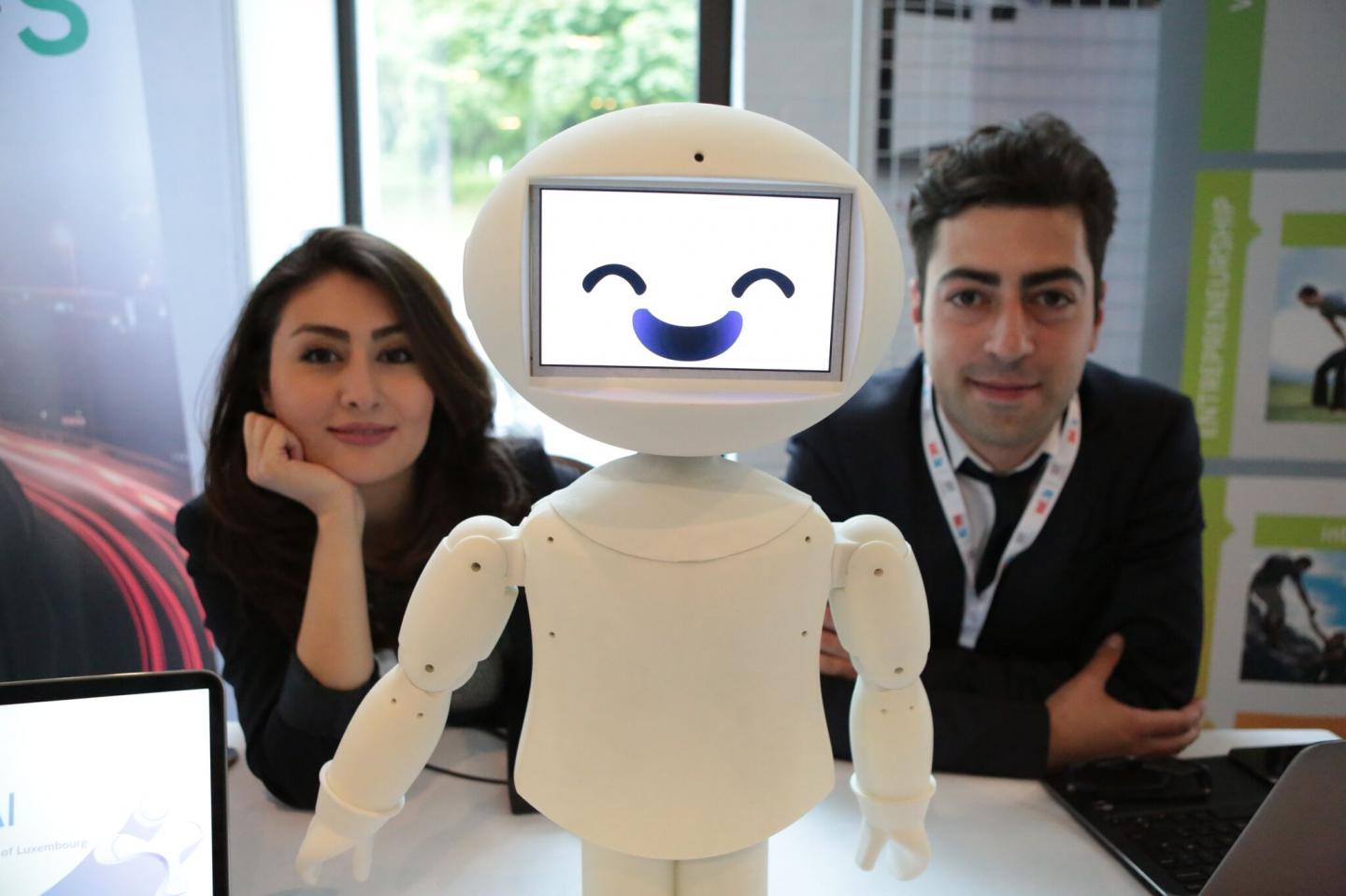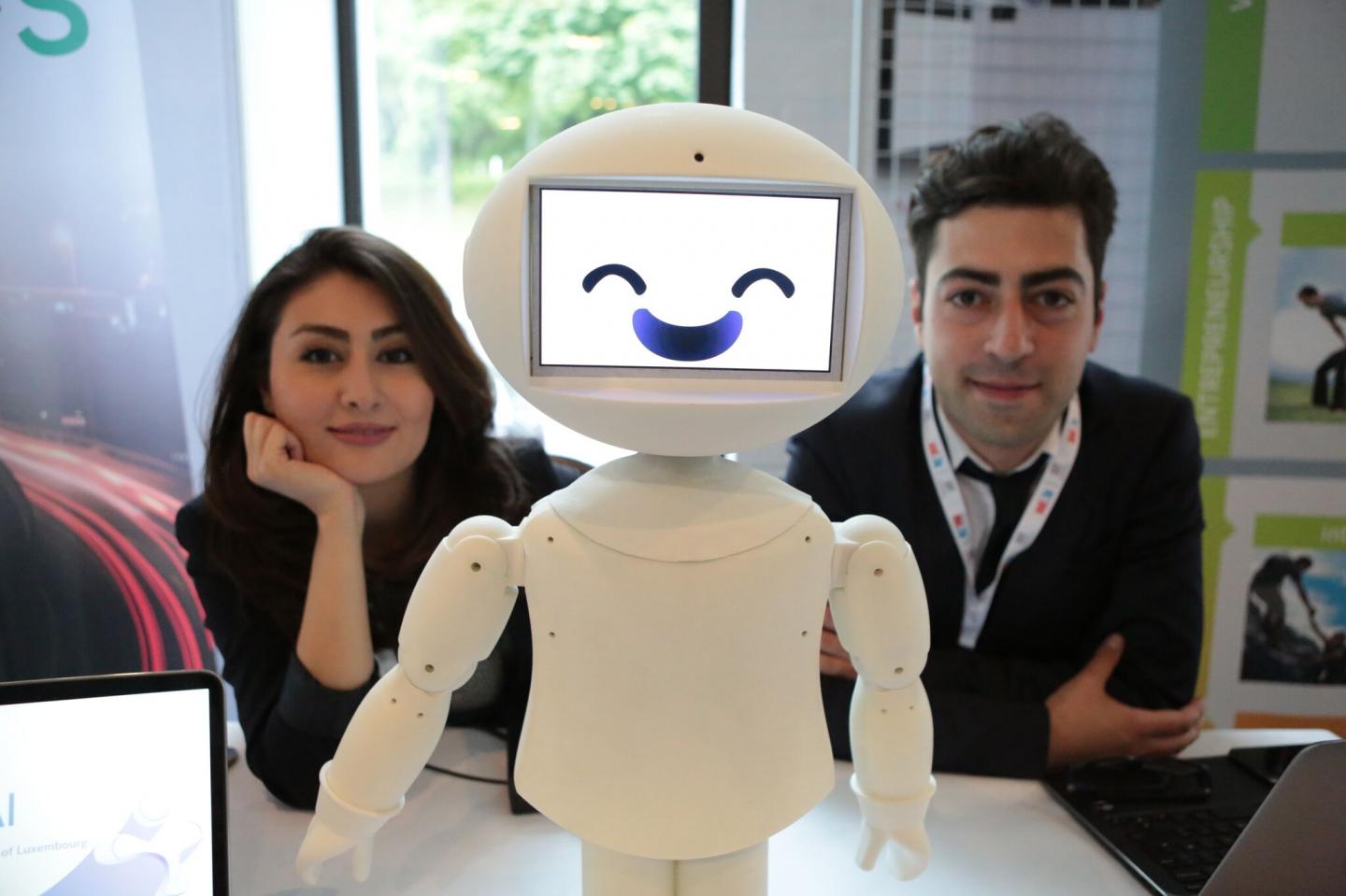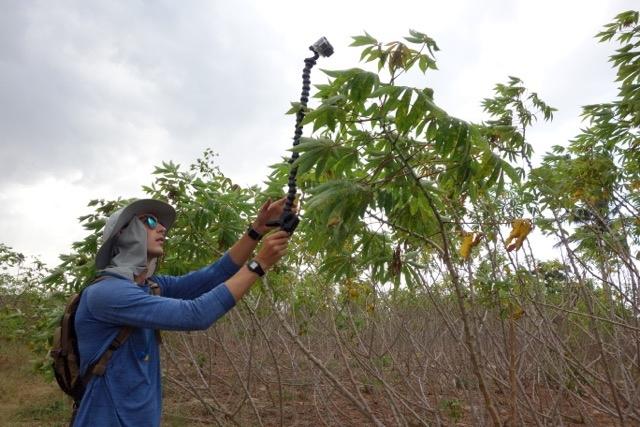
The startup LuxAI was created following a research project at the Interdisciplinary Centre for Security, Reliability and Trust (SnT) of the University of Luxembourg, funded by the Luxembourg National Research Fund (FNR) under its Proof of Concept scheme. The business model of LuxAI is developing and constructing so-called social robots. Such robots can be used, for example, in the educational or health system, where they would support trainers and therapists in their work. The robots can be programmed to practice vocabulary with children or to make rehabilitation exercises with stroke patients.
LuxAI has already been awarded several prizes for the development of its robot: It won third prize in the competition “Pitch your start-up”, in which 90 participants from Luxembourg, France, Germany, Italy and even Korea took part. At the Pirate Summit Luxembourg, LuxAI qualified for the Pirate Summit Global – a European start-up conference – taking place in September in Cologne. And finally in early July, LuxAI won first prize at the Mind & Market Forum in Luxembourg.
The “AI” in LuxAI stands for Artificial Intelligence. “Robots that are supposed to interact with humans have to process a great deal of information very quickly, and adapt their behaviours according to the interaction,” says the CEO of LuxAI, Dr. Pouyan Ziafati. Ziafati wrote his doctoral thesis on artificial intelligence and robotics at the SnT – and founded LuxAI based on it. “Our robot is the first social robot to come out of Luxembourg,” says Ziafati: “We have already run the prototype through practical tests. It received excellent scores for its social expressiveness, emotionality and ease of use.”
The heart of every robot is its programming – the software. LuxAI’s social robot is based on a so-called Robot Agent Programming Language, which Ziafati designed for his doctorate and adapted to the needs of social robots. Such programming, however, is only accessible to IT experts. “Practitioners who want to teach a robot how to train stroke patients, for example, can’t learn their way into it,” says Ziafati. “They need an interface by which they can program the robot intuitively and naturally”
LuxAI in cooperation with the Autonomous Robot Lab of the Computer Science and Communications Research Unit (CSC) of the University of Luxembourg has developed this very interface. It is based on the same Android platform as is widespread on smartphones, and can make social robots suitable for the mass market, as Ziafati assures. “Non-IT-expert people have made the first tests with our robots. They were able to program the robots for their purpose within 20 minutes. Our software lets anyone do it.” Ziafati sees possibilities for many fields of application: as learning support for autistic children, in schools, in the entertainment industry or in geriatric care. “Social robots will never replace qualified personnel – but they can support them, since they have unlimited time and can take over routine tasks,” says Ziafati. LuxAI is now working with Fondation Autisme Luxembourg and three departments in the University of Luxembourg on developing applications for autism therapy and behavioural regulation, geriatric medicine and teaching foreign languages to children in kindergartens.
Prof. Björn Ottersten, Director of the SnT, is equally pleased with the quick success of LuxAI: “LuxAI shows how our efforts to translate research results into concrete applications of high social benefit are increasingly bearing fruit. There is a growing desire among our scientists to use their findings entrepreneurially as well. We are systematically supporting them on this.” For LuxAI, the support comes through the Proof of Concept (PoC) funding programme of the Luxembourg National Research Fund (FNR). “This enabled us to develop the first prototype of our robot,” Ziafati relates. “Now we can make a successful product from it.”
###
Media Contact
Thomas Klein
[email protected]
352-466-644-5148
@uni_lu
http://www.uni.lu
The post Social robots — programmable by everyone appeared first on Scienmag.





